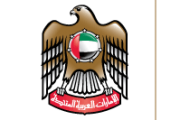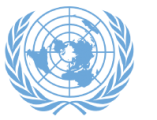Mr. President, I thank Russia for their successful stewardship of the Council this month and - equally importantly - of the World Cup! As part of your presidency, we applaud your commitment to discussing the root causes of conflict plaguing the Middle East and North Africa.
Russia has been a historic partner in our region and committed to addressing the fundamental issue underlying many of our challenges: terrorism and its bedfellow – extremist thought and ideology.
Mr. President,
At the outset, let me say that the UAE’s positions on regional matters are known. In response to Russia’s call for us to be action-oriented in our intervention, I would like to offer ideas for an integrated approach to address each of the regional conflicts that are causing instability in our region.
What it is clear is that diplomacy has failed in the Middle East. Yet diplomacy will always be key to solving the region’s crises, so we must renew our efforts to see it strengthened.
There have been calls today for new initiatives, akin to the Helsinki Process of 1975, to build confidence and resolve tensions in the region. The UAE welcomes any substantive dialogue that contributes to building confidence amongst regional states. But first, as was the case at the end of the Cold War, we must all recommit to the central principles and concepts that drove the creation of the current world order. Until that common understanding is accepted by all, we will condemn ourselves to a continuous cycle of violence in our region and beyond our borders.
For any such dialogue to be meaningful, all actors must accept these Charter principles. Iran, in particular, has consistently violated these norms and must end its irresponsible presence in Arab countries in the form of militias and terrorist groups. As the representative of the US said today, “In warzone after warzone and terrorist act after terrorist act, we find Iran and Hezbollah at the root of violence in the Middle East.”
To counter extremist ideology that is spreading like a cancer in our region – we call on Member States to lend their support to like-minded countries of the moderate Arab center, who are shifting the Middle East toward stability, development, and the rejection of any state system based on extremist ideology.
Furthermore, while we understand the need to partner with external actors, lasting regional security cannot be decided from afar – true stability in the Middle East will require Arab decision-making and leadership. We must not repeat the mistakes of the great powers after the First World War, who thought that they knew better than the people of the region, who have been suffering the consequences of that approach for a century now. That way of thinking must end as the region steps up to shoulder its responsibilities for its own future.
The era of hegemony and great power politics must be replaced by a renewed respect for the 20th century nation-state system that we believe can still meet the needs of the 21st century.
For that vision to materialize, the Council must play its part as a neutral steward for peace and security and avoid a slide into irrelevance.
As others have noted, historical understanding of context must form the basis of our future policymaking.
Let’s start with Yemen, where a picture has been painted by some of a nation plunged into chaos as a result of the intervention of the Arab Coalition to Restore Legitimacy in Yemen.
Some have forgotten that as recently as four years ago, the legitimate Yemeni government headed a functional state and had a clear process for political transition.
This Council should have taken decisive action when the Houthis took Sana’a in September 2014, causing the breakdown of the Yemeni state apparatus and resulting descent into civil war. If the Coalition had not entered at the request of the Legitimate government and in accordance with UNSC Resolution 2216, we would today be dealing with a lawless state dominated by an illegal militia who represent just 3 percent of the population, but who seek to control the fate 27 million Yemenis.
In Syria, as the brutal war enters its eighth year, in our view, a prominent Arab role is essential to resolving the conflict. With all due respect to the outside powers that are today deciding the fate of the Syrian people – Syria is an Arab nation and its future lies in an Arab regional solution with the support of the International Community and the United Nations.
There are positive trends in our region along with negative ones. For example, in Iraq we join others in applauding the defeat of ISIS and congratulate the Iraqi people on the success of their recent parliamentary elections. The UAE looks forward to a renewed Iraqi role in the Arab political scene.
But we cannot hope to address new conflicts without resolving older ones. The call for a Palestinian state will remain a rallying cry for proponents of extremist ideologies. Until the rights of the Palestinians are met, this issue will be one of the root causes of regional instability and will prevent Israel from having a secure place in our region.
Finally, diplomacy in our region will not thrive unless we restore the deficit of trust that exists. To do that, we need honest and transparent partners and a collective vision of our shared security.
We took diplomatic measures over a year ago against the state of Qatar because we could no longer tolerate its policies and support for terrorist groups that undermine stability in our region and throughout the world. The new Arab center that I spoke of will go from strength to strength as our model speaks to the hearts and minds of the millions of Arabs who want a future based on optimism rather than nihilism.
We will always be an inclusive group for those who reject extremist ideology in all its forms, and seek to partner peacefully in a positive and moderate vision for our region.
Mr. President, the UAE and its allies are actively working to stabilize our region and advance its development.
Bellwethers for thriving societies are the protection of the rights of minorities and celebration of diversity of ethnicity and creed.
Building and maintaining strong institutions is key to this. The unrest of the past seven years is in large part the result of an institutional trust deficit across the region, which saw simmering discontent boil over in the collapse of the social contract between people and government. By contrast, the UAE’s focus and commitment to the strength of its own institutions, based on inclusiveness, transparency, and good governance has produced strong social trust.
We must therefore renew our efforts to institution-build across our region and replenish the trust deficit that is shaking its core.
We stand ready to facilitate new strategies to address the multitude of crises in our region and we seek partnerships with both historic friends - and new ones - to advance those efforts. We only ask that our partners respect our equal voice at the table in deciding our own collective future.
An optimistic, forward-looking model for the region is critical to our collective success. We should not focus solely on the future that we don’t want; we must instead begin to envision where we want to go and what will be required to reach that destination.
Thank you, Mr. President.


